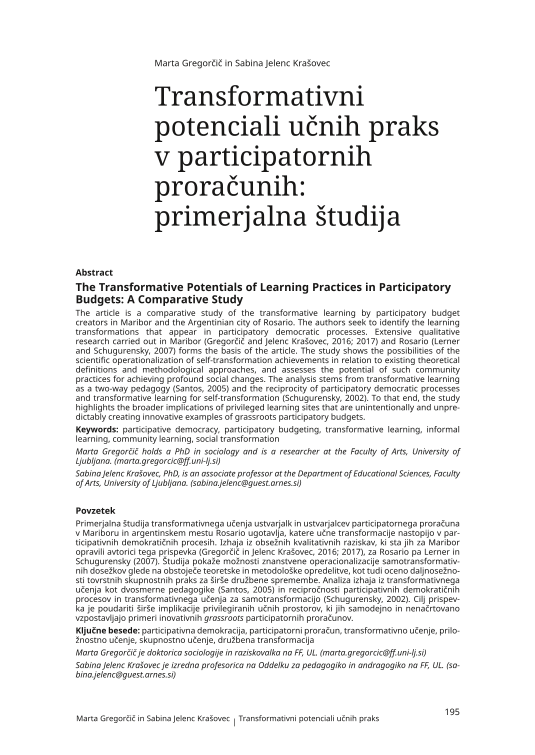The article is a comparative study of the transformative learning by participatory budget creators in Maribor and the Argentinian city of Rosario. The authors seek to identify the learning transformations that appear in participatory democratic processes. Extensive qualitative research carried out in Maribor (Gregorčič and Jelenc Krašovec, 2016; 2017) and Rosario (Lerner and Schugurensky, 2007) forms the basis of the article. The study showsthe possibilities of the scientific operationalization of self-transformation achievements in relation to existing theoretical definitions and methodological approaches, and assesses the potential of such community practices for achieving profound social changes. The analysis stems from transformative learning as a two-way pedagogy (Santos, 2005) and the reciprocity of participatory democratic processes and transformative learning for self-transformation (Schugurensky, 2002). To that end, the study highlights the broader implications of privileged learning sites that are unintentionally and unpredictably creating innovative examples of grassroots participatory budgets.




